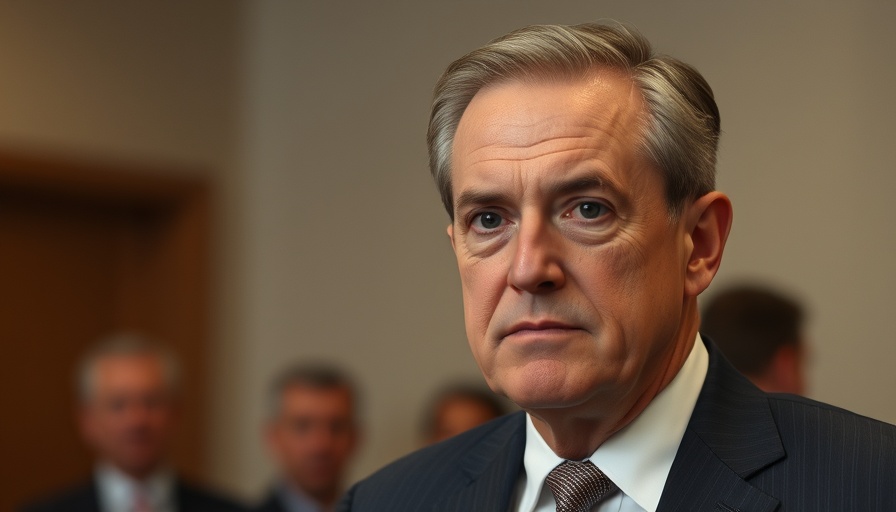
Trump vs. Powell: The Tensions Unraveled
The ongoing friction between former President Donald Trump and Federal Reserve Chair Jerome Powell has escalated once again, with Trump publicly demanding Powell's resignation. This conflict underlines a significant moment in U.S. economic policy discussions, particularly as it relates to public perception and trust in financial institutions.
The Historical Context: Appointer vs. Appointee
Trump was the one who nominated Powell for the chair position, which adds a complex layer to their relationship. Initially, Trump saw Powell as an ally who would help boost the economy through lower interest rates. However, as Trump’s expectations have not been met, he has resorted to attacks that may reflect his frustration over the economic outcomes versus what he perceived as Powell's shortcomings.
This relationship is vital to understand because it showcases the balance of power in financial policymaking within the U.S. Federal Reserve's structure. Traditionally, the Fed chairs are expected to act independently to safeguard the economy from political pressures, allowing for measured, long-term financial strategies.
Interconnected Economy: Tariffs and Interest Rates
The recent discussions have reaffirmed the connection between U.S. tariffs and interest rates. Powell has stated that the trade policies introduced during Trump's presidency resulted in economic headwinds that have made it more challenging to alter interest rates. As interest rates remain a crucial aspect of financial planning—impacting everything from mortgages to business investments—these developments are paramount for individuals and investors alike.
Implications for Financial Planning
In light of these pressures, what should everyday investors and businesses consider? Understanding your financial planning strategies—whether it involves retirement planning, wealth management, or risk management—is more important than ever. The fluctuating economic landscape calls for vigilant stock market investments and tailored investment strategies in anticipation of Federal Reserve actions influenced by political dynamics.
Analyzing Investement Strategies Amidst Turmoil
As investors digest this news, strategies such as portfolio diversification are crucial. Creating a balanced portfolio that includes bonds and securities, mutual funds, and real estate investments can help hedge against economic uncertainty. Moreover, knowledge of tax planning and wealth preservation strategies can mitigate the impacts of market volatility.
Future Predictions: Whither Powell?
Looking ahead, many speculate on Powell's longevity in this role. His reappointment by President Biden indicates a commitment to the Fed’s current trajectory, which favors controlled policy over populist measures. However, this dynamic is subject to change based on future administrations, as history shows that financial leadership can alter based on political landscapes.
Ultimately, understanding the implications of political pressures on financial institutions is vital to anyone involved in financial planning. Recognizing the shifting dynamics can ensure that not only are individuals ready to capitalize on favorable circumstances but also prepared for any downturns.
Conclusion: Actionable Insights for Investors
The continued conflict between Trump and Powell serves as a reminder of the unpredictable nature of financial governance. It is essential for investors to stay informed and make strategic financial moves that reflect changing market and political conditions. Engaging in financial consulting and employing financial advisors can provide the necessary insights to navigate this landscape effectively.
For those seeking to establish or revise their financial plans, now is the time to act. Understanding how political narratives impact the economy can empower you in achieving long-term financial goals.
 Add Row
Add Row  Add
Add 




Write A Comment